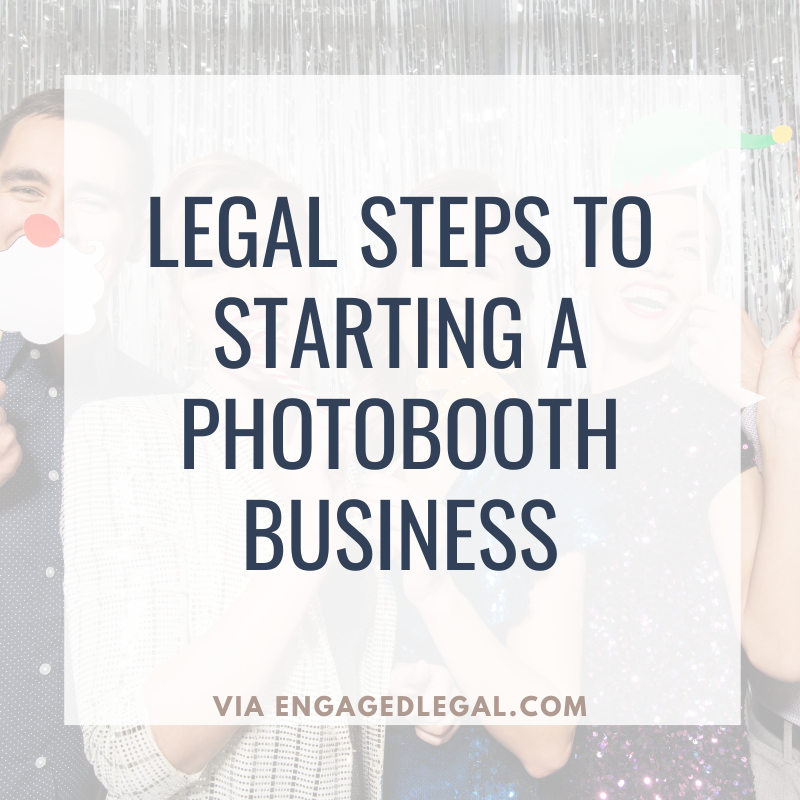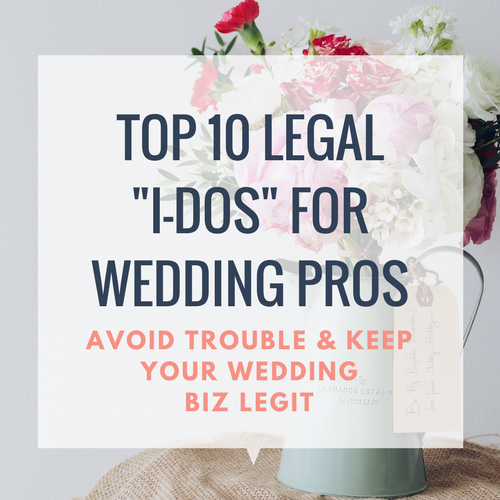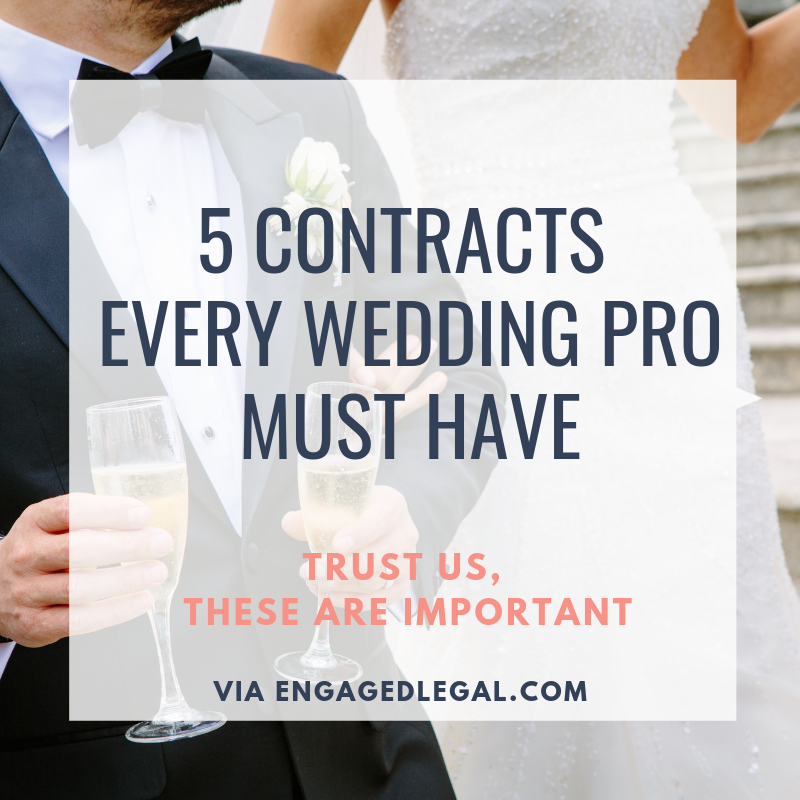How to Legally Start a Photobooth Business
/So, you're ready to turn your passion for capturing joyous moments into a thriving wedding photo booth business! Now, let's make sure your journey is as legal as it is fun….because let’s be real, drunk event guests LOVE a photobooth moment, and can get a litttttttle too excited about those tiny hat props… so let’s make sure we’re setting up your business to protect you legally.
LET’S GO!
Choosing Your Business Structure
Whether you're flying solo or teaming up with a business bestie, you’re going to need to choose the type of structure you want to build. Your options? Typically you’ll see sole proprietorship, partnership, LLC, or corporation.
Each structure has different implications for taxation, liability, and ownership, so choose based on your specific needs and circumstances. Many find the user-friendly liability protection of an LLC to be a perfect match for a wedding photo booth venture. For help on making this important decision, try this article where I go way in depth!
Clear your Brand
Your business name is the face of your brand, and can be the difference between thriving and failing. It’s critical to ensure that it's not already in use elsewhere.
Before using a business name, it's important to check its availability not just on social media platforms, but in relation to trademarks. You can do this by conducting a trademark clearance search, which helps you determine whether the name is already registered as a trademark and/ or if it is available for use.
A trademark is a symbol, design, word, or phrase that is used to identify and distinguish the goods or services of one company from those of another. (note: Click HERE for an article about trademarks for wedding pros!) Trademarks are valuable assets that help build brand recognition and loyalty. Registering a trademark provides legal protection for your brand identity and prevents others from using a similar name or logo in your industry.
A trademark clearance search is important because it helps you avoid potential legal issues and costly disputes with other businesses that have already established trademarks in the wedding and event industry. If you choose a trademark that is too similar to an existing trademark, you may be sued for trademark infringement, which can result in legal fees, damages, loss of social media handles, and required rebrands.
The WORST thing about my job is telling people with big brands and large followings that they have to rebrand because of a trademark issue!
Registering Your Business
Once you've chosen a structure, you'll need to file the required paperwork with the appropriate government agency. This typically involves registering your business with with:
your state government,
obtaining a federal tax identification number (EIN) from the Internal Revenue Service (IRS),
obtaining a state tax identification number,
registering for a business license with your locality, if required, and
obtaining any required licenses and permits. The specific licenses and permits you need depend on the type of business you are starting and the state and local regulations in your area, but typically, we’re going to be looking at things like zoning compliance for home based businesses (not as scary as is sounds) and local business licenses.
File your BOI with FinCEN (new requirement as of 2024!).
Business Insurance
Photobooths are expensive. Consider investing in business insurance, covering aspects like liability and equipment protection. Some venues even require it in order to bring your equipment onto their grounds. You’ll want to look at general liability insurance, but also potentially specialized insurance for the transport of your booth as well.
Finances- KEEP THEM SEPARATE.
The biggest thing you need to do in ordre to keep your LLC / Corporate protection?
DON’T COMINGLE FUNDS.
That means keep your business expenses in your business account, and your personal expenses in your personal account. No paying your personal rent directly from your business account!
The easiest way to separate your personal finances from your business finances is by maintaining a business bank account. This will make it easier to track your income and expenses, and it will also make tax time less stressful. You’ll put all incoming funds into the business bank account, and “pay yourself” (which can be as simple as transferring money from one account to another) by moving money into your personal account.
You’ll also need to set up a system for tracking income and expenses, and keep all receipts and invoices. You may want to consult with an accountant or bookkeeper to ensure that you're meeting all tax requirements and keeping accurate records.
TL;DR: Never pay personal expenses directly from your business account. Always move money into a personal account first.
Legal Props: Contracts for a Picture-Perfect Partnership
Contracts are legally binding agreements between two or more parties that outline the terms and conditions of a business transaction. Contracts are important because they:
Clarify Expectations: Contracts help memorialize the expectations of both parties involved in a business transaction. The contract should state the details of what is being exchanged, when and where the services will take place, what services are provided, how much the client is going to pay, and what happens in a “worse case scenario.” By outlining the terms and conditions of the agreement, both parties have a clear understanding of what is expected of them and what they can expect from the other party.
Resolve Disputes: Contracts provide legal protection for both parties if something goes off the rails. If there is a dispute between the parties, the contract can be used as a roadmap to resolve the dispute. A good contract provides a clear and enforceable framework for resolving disputes, addresses what happens after a breach of the agreement, and provides an “out” for the harmed party.
Distribute Risk: Contracts help manage risk for businesses. By outlining the risks and responsibilities of each party, a contract can help mitigate the potential for unexpected costs or liabilities, and even shift the risk to the other party. Crazy wedding guests damage your photobooth equipment? Props go missing? Contracts can make sure the couple is responsible for paying for that damage.
Shameless plug: Our Photo Booth Contract Template has ALL of this good stuff in there to keep your liability minimized.
Wrap Up:
And there you have it— your guide to launching your wedding photo booth company legally! Now set up that booth, strike a pose, and let’s get started on this entrepreneurial journey! 📸✨🎉



















